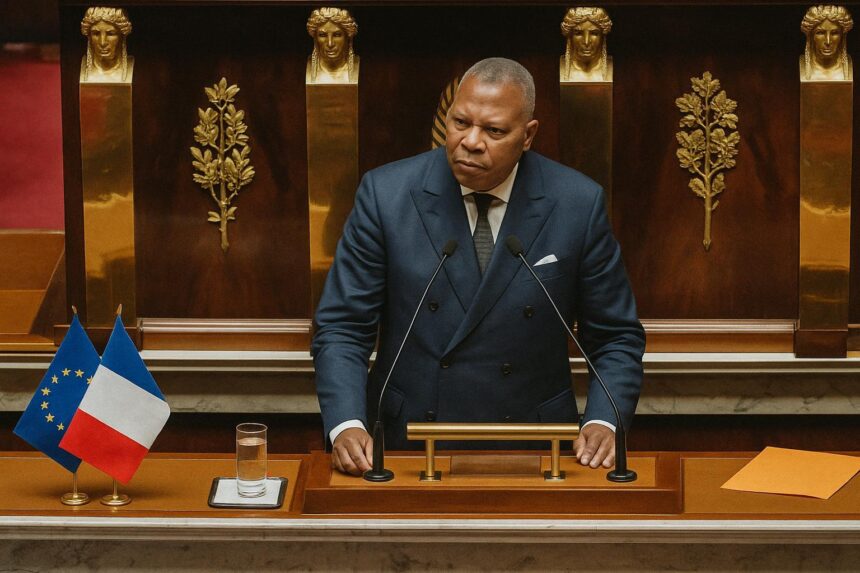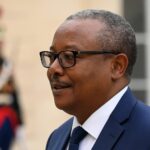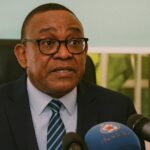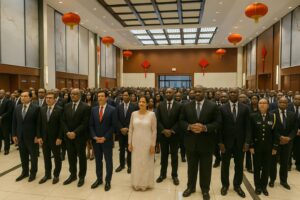Parisian Forum Marks Half-Century Milestone
The marble corridors of the Palais Bourbon rarely lack ceremony, yet the fiftieth anniversary of the Assemblée parlementaire de la Francophonie (APF) carried an unusual symbolic weight. Delegations from five continents convened between 9 and 13 July in a climate of collective self-examination, keen to gauge the organisation’s relevance amid fractured multilateralism. Congo-Brazzaville’s Speaker of the National Assembly, Isidore Mvouba, seized the lectern early in the proceedings, delivering a carefully balanced address that merged diplomatic gravitas with measured optimism (APF Secretariat, July 2024).
- Parisian Forum Marks Half-Century Milestone
- Congo’s Rhetoric of Equilibrium and Anticipation
- French Language as Strategic Soft Power
- Parliamentary Diplomacy: An Avenue for Pragmatic Coalitions
- Macron’s Élysée Reception and Subtle Signalling
- Navigating Multilateral Fatigue and Great-Power Fragmentation
- A Measured Assessment of Outcomes
- Looking Beyond the Palais Bourbon
Congo’s Rhetoric of Equilibrium and Anticipation
Mvouba’s speech situated Francophonie as a stabilising fulcrum in a world buffeted by armed conflicts, supply-chain insecurity and the accelerating climate emergency. Stressing that cultural dialogue is neither ornamental nor optional, he argued that the French-speaking space must ‘act before tragedies, not after’—a phrasing that resonated with parliamentarians mindful of escalating crises in the Sahel and the Sudanese periphery (Le Progrès Congolais, 10 July 2024). The tone was one of prudent anticipation rather than alarmism, a nuance intended to reassure partners that Brazzaville remains committed to consensus-driven solutions.
French Language as Strategic Soft Power
Echoing President Denis Sassou Nguesso’s assertion that Francophonie is both ‘cenacle of harmony’ and vehicle of solidarity, the Speaker emphasised French as a diplomatic instrument anchored in reconciliation. In Congolese schools the language still serves as the principal medium of instruction, but, more importantly for Mvouba, it enables Brazzaville to lobby effectively for debt relief, climate financing and post-Covid recovery packages within multilateral fora (Ministry of Foreign Affairs, Brazzaville, 14 July 2024). By positioning linguistic commonality as leverage rather than mere heritage, Congo’s delegation projected a modern brand of soft power that appeals to both donors and Global South peers.
Parliamentary Diplomacy: An Avenue for Pragmatic Coalitions
While presidential summits often dominate headlines, seasoned observers note the incremental yet cumulative influence of parliamentary diplomacy. Mvouba reminded delegates that the APF’s committees on political affairs and sustainable development frequently incubate legislative templates later adopted by member states. Congo-Brazzaville, for instance, drew on APF recommendations in crafting its 2022 law on biodiversity offsets. Such examples offered tangible proof that dialogue inside parliamentary chambers can translate into enforceable policy, a point that earned discreet praise from Canadian and Vietnamese parliamentarians in private corridor conversations reported by regional correspondents.
Macron’s Élysée Reception and Subtle Signalling
The session’s protocol climax was a collective audience at the Élysée Palace, where President Emmanuel Macron greeted the presiding speakers. Although largely ceremonial, the encounter conveyed France’s desire to keep Francophone partners engaged at a moment when competing linguistic blocs—chiefly the English-speaking Commonwealth—are courting African legislatures. Sources close to the Congolese delegation described the exchange as ‘warm but business-like’, with climate finance and the African Continental Free Trade Area briefly highlighted. For Brazzaville, the optics affirmed its status as a valued intermediary capable of articulating African concerns within European power centres.
Navigating Multilateral Fatigue and Great-Power Fragmentation
Analysts attending the session noted that talk of “multilateral fatigue” surfaced in side-events on energy transition and digital governance. Mvouba’s intervention sought to re-energise the Francophonie by advocating a two-track approach: strengthen South-South technical cooperation while safeguarding North-South aid flows. This dualism, he argued, can shield mid-sized economies like Congo-Brazzaville from the oscillations of great-power competition without forcing them into reductive allegiance patterns. The message aligned closely with recent African Union communiqués and found an attentive audience among Caribbean and Pacific island delegations combating similar vulnerabilities.
A Measured Assessment of Outcomes
Concluding the proceedings, the APF adopted a resolution encouraging pre-emptive mediation in zones of linguistic affinity, an idea initially formulated by the Congolese delegation in committee sessions. Though non-binding, the text illustrates how smaller states can inject constructive proposals into the multilateral bloodstream. Commentators from France’s Centre d’Analyse Géopolitique judged Brazzaville’s performance ‘strategically focused and rhetorically disciplined’, a characterisation that dovetails with the government’s broader foreign-policy doctrine of consensual engagement.
Looking Beyond the Palais Bourbon
As delegates dispersed, discussions persisted about translating rhetorical solidarity into tangible budget lines for education, green infrastructure and conflict-prevention mechanisms. For Congo-Brazzaville, the imperative is clear: leverage the legitimacy earned in Paris to attract development partnerships without compromising its policy autonomy. In that sense, Mvouba’s measured eloquence may serve as both diplomatic calling card and strategic template, reinforcing Brazzaville’s aspiration to function as an honest broker within the Francophone commons.





















